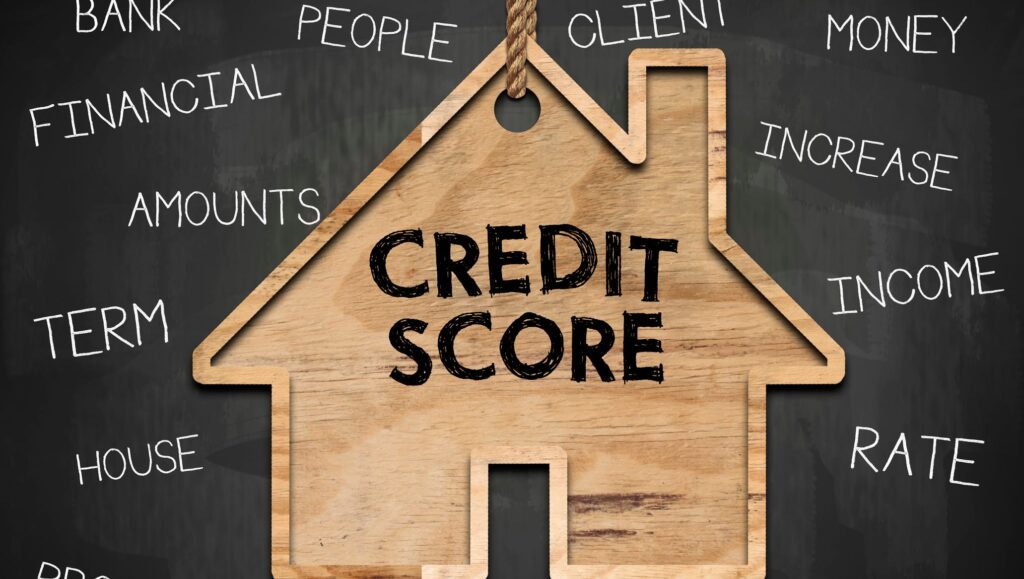
The two most well known companies in the credit scoring world use different scoring models to arrive at your credit score
When applying for credit of any kind our credit score is one of the most important factors that is considered in any lending decision. For this reason, having good credit is important when you want to make any important and big financial purchases because you will likely need good credit in order to make any such move and get approved for the funds you need. What consumers are learning when they begin applying for loans is there are different versions of our credit score being used for consumer vs mortgage lending decisions. What credit score is used for a mortgage is a question that is asked often and we offer answers in the article that follows.
There are three main credit bureaus that house consumer credit data and those three are Transunion, Equifax, and Experian. According to Experian, our credit score is a number that is defined as “a number that summarizes the historical credit information on a credit report. The number reflects the likelihood that you will become delinquent on a loan or a credit obligation in the future”. But as we will learn, all credit scores are not created equal and there are different versions used for different lending products.
How many different types of credit scores are there?
There are essentially two main versions of credit scoring models and those come from FICO and VantageScore. FICO is a credit score developed over 30 years ago by Fair Isaac Corporation and the VantageScore is a credit scoring model owned by the three credit bureaus Experian, Equifax, and Transunion and was created in 2006 as a competitor to FICO.
Both companies use similar components to compute your credit score and those include payment history, amounts owed, length of credit history, new credit, and types of credit. Both credit score algorithms also compute your credit score in a similar range of 300 to 850, but that is where the similarities normally stop.
Both companies have their own proprietary credit score algorithms and using information from the credit data collected they also have multiple types of credit scores that are used for different lending purposes. This means that a consumer credit card lender may use one version of a consumers credit score while a mortgage lender uses a different version of our credit score for lending purposes. The reason most often given for this is each of these credit scoring models weight some credit factors higher than others based on the lending product a consumer is applying for.
Which Credit Score is used by Mortgage Lenders?
Fannie Mae and Freddie Mac dictate which credit score must be used in mortgage lending decisions and that credit score at the moment must come from FICO. And as we explained earlier FICO has different types of credit scores that are used for different lending products. For mortgage purposes, the versions designed for mortgage credit pulls are tailored for factors that are considered to be important for a housing purchase.
The FICO scores used for mortgage lending purposes are:
FICO Score 2 Experian
FICO Score 5 Equifax
FICO Score 4 Transunion
As you can see each of the credit bureaus use a slightly different version of the FICO score but while there might be a slight difference to each, the common denominator is each of these FICO versions are tailored towards those making a housing purchase. The FICO mortgage scores have been used reliably for years by lenders in the US and they have proven to be a solid predictor of financial success as a homeowner.
If you are planning to buy a home in the next 12 months or less, you should be speaking to your loan officer if you recently have been building or repairing your credit. You will want to see where you are with your credit progress, and it is best to hear an update straight from a lender.
In addition, consumers have numerous ways to monitor their credit scores, but it is important to know which credit scores your credit monitoring company follows. Read about the credit monitoring services you are considering with the goal of learning if they follow the VantageScore or the FICO score. If you are hoping to buy a home or a car and you are paying for a monitoring service that follows your VantageScore, this will not do you any good since most auto and all mortgage lenders use the FICO score.
It’s a smart decision to monitor your credit score if you are in the credit building or credit improvement stage. But there is no need to watch your score daily to the point that you worry obsessively over any daily changes to your credit score. As we use our credit, notes and updates are being made to our credit reports often during a typical month so try to check in only once per month or as needed so you are not consumed daily by what goes in to your credit score and the credit report.

Recent Comments